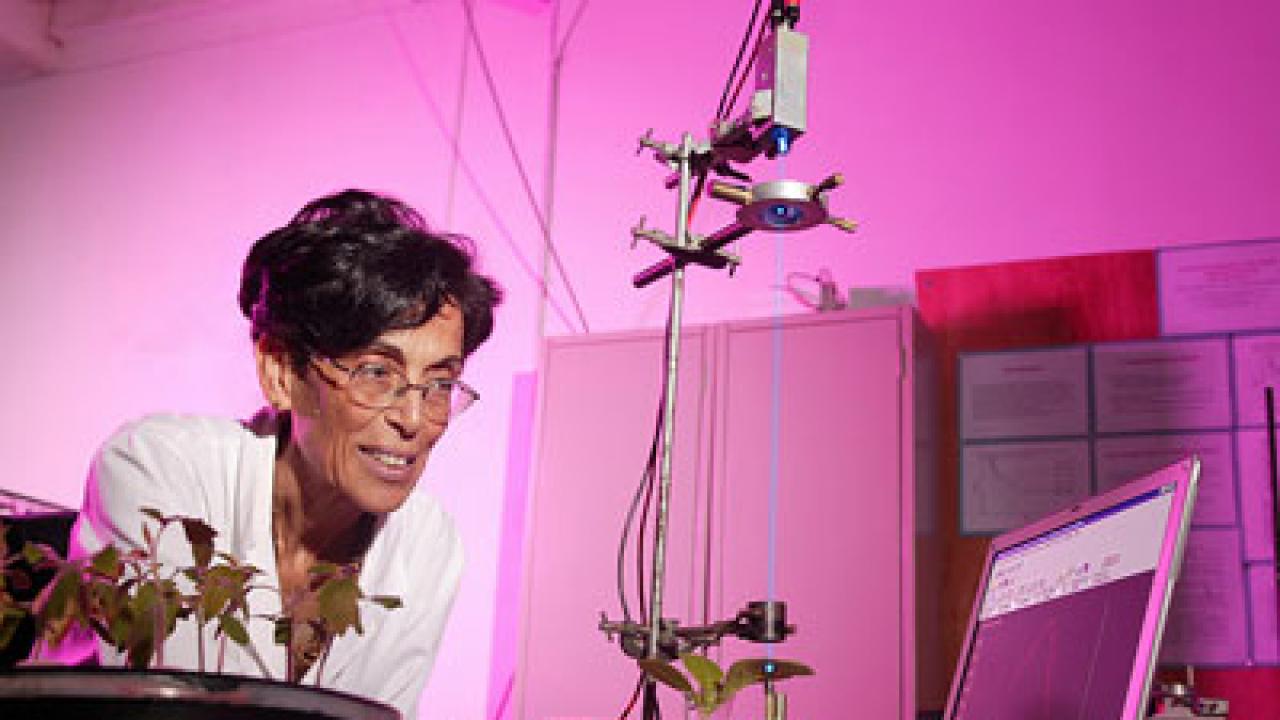
Zohra Ben Lakhdar thrives on challenges. As one of the few women to enter in the male-dominated arena of physics and mathematics research in the 1960s, Lakhdar had plenty of challenges thrown her way. Considered one of the prominent figures in physics in Tunisia today, Lakhdar started her scientific pursuits more than 30 years ago when most women in the traditional Tunisian society were confined to the roles of mothers and wives.
Lakhdar was appointed as professor of physics at Tunis El Manar University in Tunisia in 1978. She later went on to direct the university's Laboratory of Atomic-Molecular Spectroscopy and Applications. In 2005, Lakhdar was honoured with the L'Oreal-UNESCO award for Women in Science for her experiments and models on infrared spectroscopy and its applications to pollution, detection and medicine. A staunch friend of ICTP and an associate member of the centre since 2001, Lakhdar says that research means exchanges of ideas, looking for answers and solving problems, and these aspects are what attracted her to science.
For Lakhdar, growing up in a large family meant helping with household chores and taking care of younger siblings while also completing school work. "I was among the older of ten siblings," says Lakhdar. "I went to school but had tasks at home too. Education was important to my family, and it was through education and by doing well at school that I earned the respect of my parents, brothers and sisters."
When Tunisia gained independence in 1956, the country enacted laws to give women and men equal rights in education. "Having laws in place was an important step. I gained admission to Sadiki College, which was the best school in Tunis for physics and mathematics. At that time, I was the only woman in my class." Although her professors and peers were welcoming, Lakhdar felt that the society's attitude toward women entering science--a man's domain up to that point--was far from accepting. "Physics and mathematics were thought of as difficult subjects for men and therefore impossible for women," says Lakhdar.
Lakhdar went on to pursue higher studies in France and earned her doctorate on atomic interactions using spectroscopy and spectral analysis. An important life lesson Lakhdar learned while completing her thesis work was how to prioritize. "My husband and I were both in the midst of our theses work, and we decided to first complete our doctorates and then start a family. And I think it is important that women in the workforce learn the importance of prioritizing."
When Lakhdar returned to Tunisia to accept a professorship, she was among the few women with a faculty position. "Equal rights laws for women are a step in the right direction, but we also need to see a change in attitudes. That can start at home, with parents treating their sons and daughters equally," says Lakhdar, a mother of two daughters.
"Knowledge is power, and for a long time power has been associated with men, so knowledge remained with men. But things are changing and I hope to see women gaining power through knowledge."
















